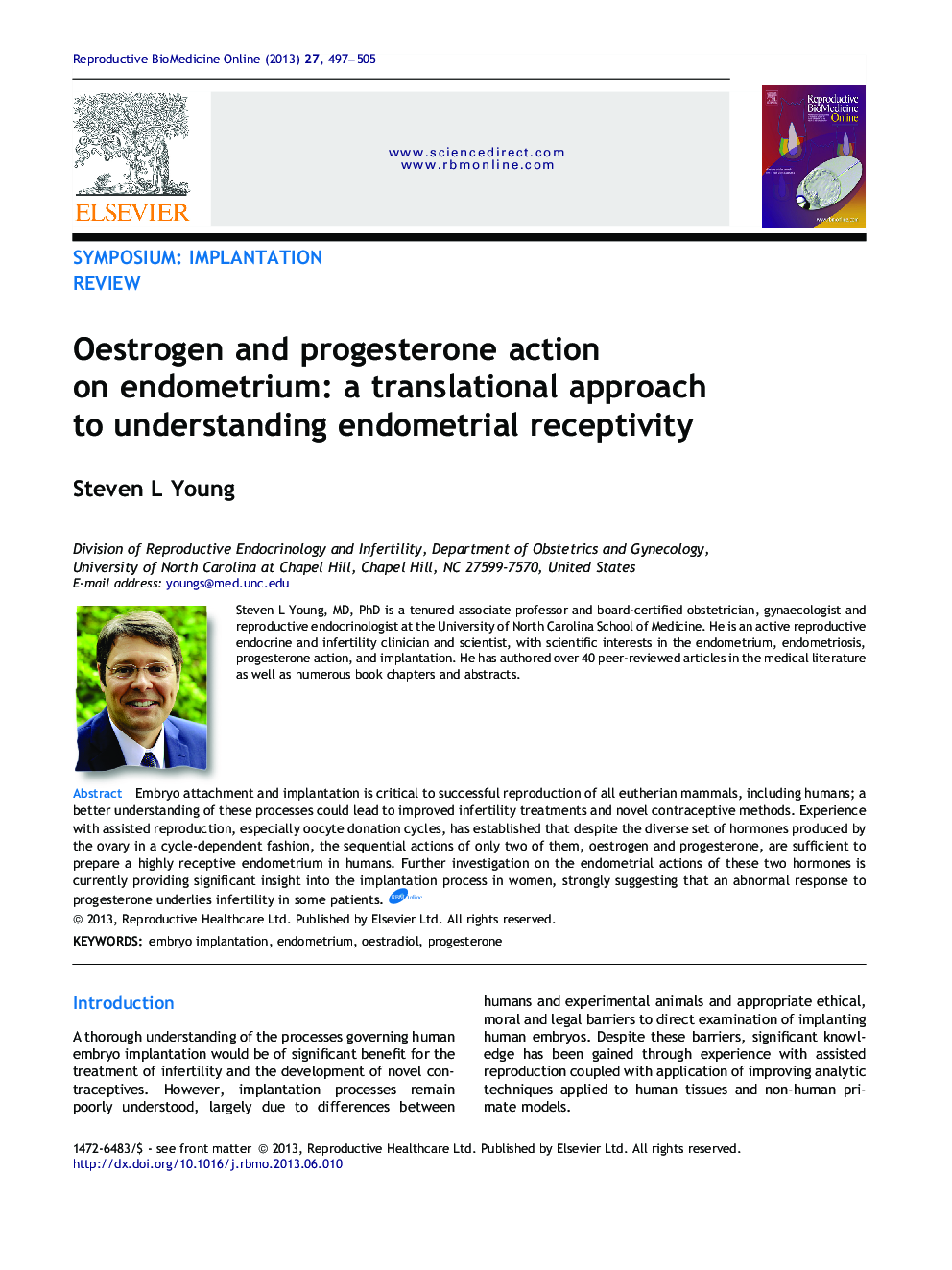| Article ID | Journal | Published Year | Pages | File Type |
|---|---|---|---|---|
| 3970494 | Reproductive BioMedicine Online | 2013 | 9 Pages |
Embryo attachment and implantation is critical to successful reproduction of all eutherian mammals, including humans; a better understanding of these processes could lead to improved infertility treatments and novel contraceptive methods. Experience with assisted reproduction, especially oocyte donation cycles, has established that despite the diverse set of hormones produced by the ovary in a cycle-dependent fashion, the sequential actions of only two of them, oestrogen and progesterone, are sufficient to prepare a highly receptive endometrium in humans. Further investigation on the endometrial actions of these two hormones is currently providing significant insight into the implantation process in women, strongly suggesting that an abnormal response to progesterone underlies infertility in some patients.Embryo implantation is a key process in successful reproduction. A better understanding of the processes controlling implantation would lead to improved infertility treatments and new contraceptive methods. Experience with assisted reproduction, especially oocyte donation cycles, has established that, despite the variety of hormones produced by the ovary in a cyclic fashion, the sequential actions of only two of them, oestrogen and progesterone, are sufficient to prepare a human endometrium to be highly receptive to embryo implantation. Recent studies show that only a small amount of each of these hormones is necessary for most women. Further work strongly suggests that an abnormal response to progesterone underlies infertility in some patients.
